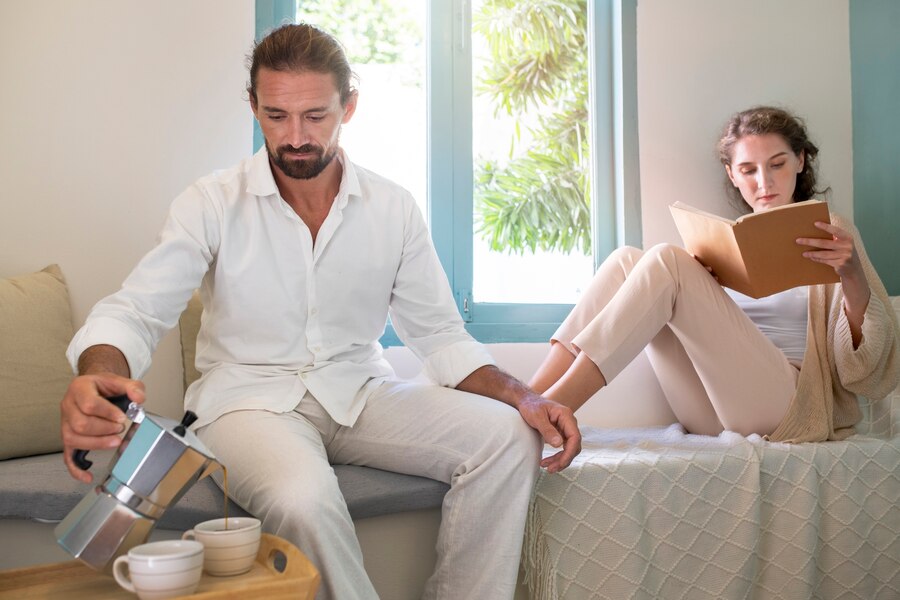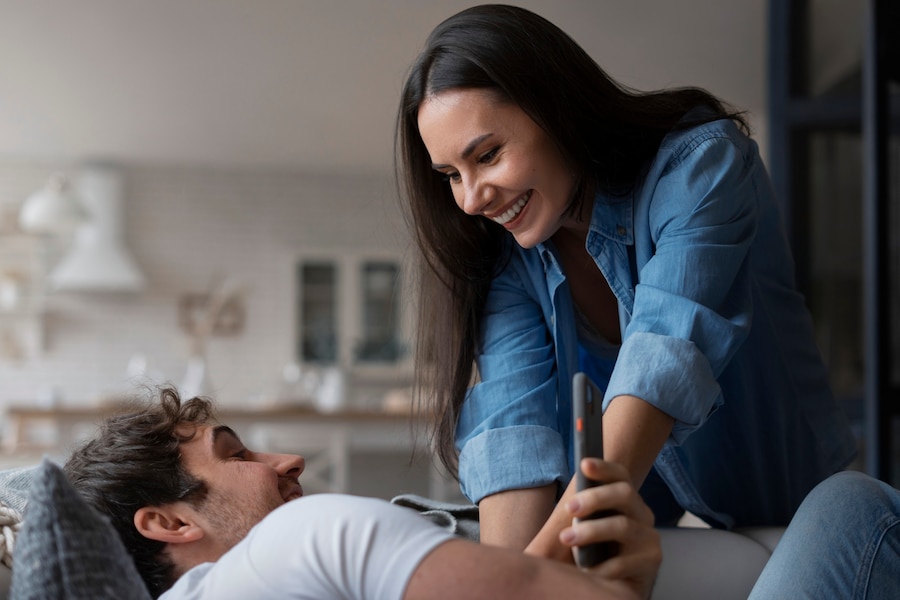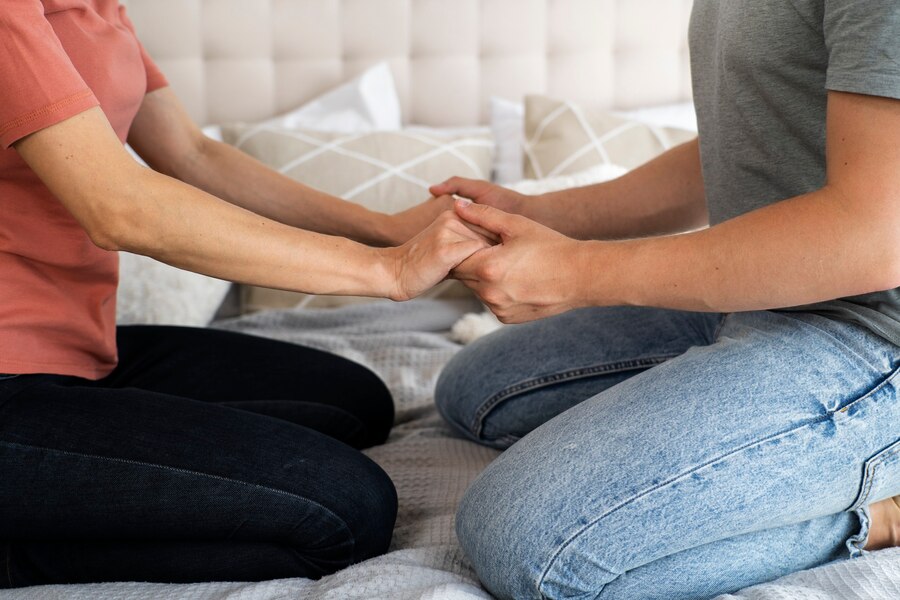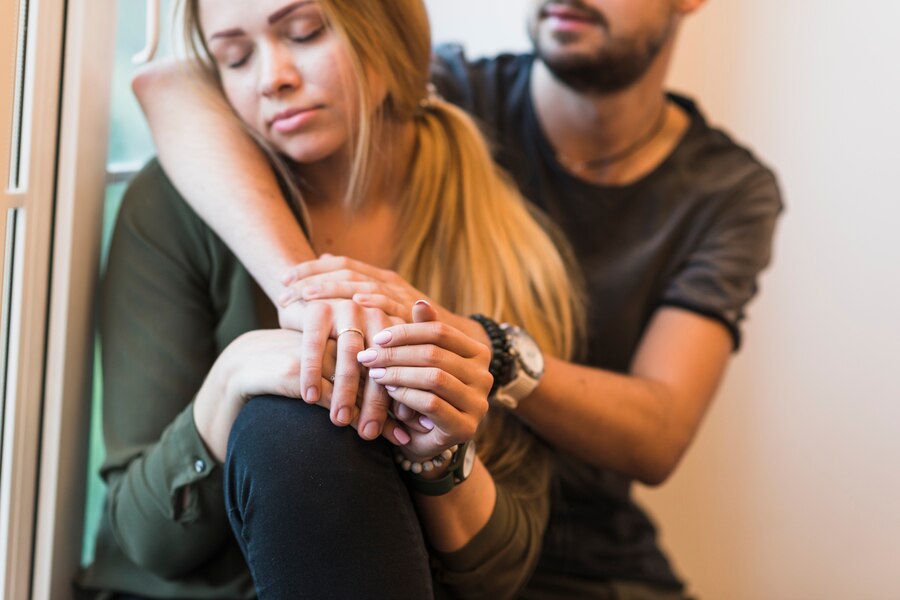Rekindling Love: How Couples Rehab Programs Foster Renewal and Recovery
In the landscape of addiction recovery, the journey to sobriety is often portrayed as a solitary path. However, for couples grappling with substance abuse, the road to recovery can be a shared experience that not only addresses individual addictions but also revitalizes the relationship itself. This concept of dual rehabilitation is the cornerstone of couples rehabs, specialized programs designed to help partners heal together.
The notion of “Love’s Second Chance” embodies the essence of these programs, offering couples an opportunity to rebuild their lives and relationships simultaneously. Couples rehabs aim to mend the fractures caused by addiction, fostering an environment where trust can be restored, communication improved, and emotional bonds strengthened. By addressing the unique dynamics of romantic partnerships, these rehabs provide a comprehensive approach to recovery, focusing not only on individual healing but also on the renewal of the relationship.
Couples Rehabs Services 888-325-2454
Understanding Couples Rehabs
Couples rehabs, also known as couples addiction treatment centers, are specialized facilities designed to help romantic partners recover from substance abuse issues together. These rehabs recognize that addiction often affects more than just the individual; it impacts relationships, families, and communities. Therefore, couples rehabs aim to address both the individual and relational aspects of addiction, fostering a holistic path to recovery.
Definition and Purpose
Couples rehabs are treatment programs tailored specifically for couples who are struggling with addiction. The primary goal is to provide a supportive environment where both partners can work towards sobriety while simultaneously rebuilding their relationship. The purpose of these programs is not only to treat the addiction but also to mend and strengthen the emotional and psychological bonds that may have been damaged by substance abuse. By treating the couple as a unit, these rehabs aim to create a foundation for lasting recovery and a healthier, more resilient relationship.
Types of Programs Available
- Inpatient Programs: These are intensive, residential treatment programs where couples live at the facility for a specified period, usually ranging from 30 to 90 days. Inpatient programs offer a structured environment with 24/7 medical and emotional support.
- Outpatient Programs: These programs allow couples to live at home while attending therapy sessions and treatment programs during the day or evening. Outpatient programs are often suitable for those who have completed an inpatient program or who have less severe addiction issues.
- Detoxification Services: For couples who need to detox from substances before beginning therapy, many rehabs offer medical detox services. This process is supervised by healthcare professionals to ensure safety and comfort.
- Aftercare Programs: Long-term recovery often requires ongoing support. Aftercare programs provide continued counseling, support groups, and resources to help couples maintain their sobriety and relationship health after completing a primary treatment program.
Key Components of Treatment
Effective Couples rehab programs integrate several key components to ensure comprehensive treatment:
- Individual Therapy: Each partner receives personalized therapy to address their unique issues related to addiction. This helps them understand their triggers, develop coping strategies, and work through personal challenges.
- Couples Therapy: Joint therapy sessions focus on improving communication, resolving conflicts, and rebuilding trust. Therapists help couples develop healthier interaction patterns and work together towards common goals.
- Group Therapy: Participating in group therapy sessions with other couples can provide additional support and perspective. Sharing experiences and challenges with others in similar situations can be incredibly validating and motivating.
- Educational Workshops: Many programs offer workshops on various topics related to addiction, recovery, and relationship dynamics. These educational sessions equip couples with knowledge and tools to better understand their situation and make informed decisions.
- Holistic Therapies: Recognizing that recovery is not just about abstinence, many couples rehabs incorporate holistic therapies such as yoga, meditation, art therapy, and mindfulness practices. These approaches help couples manage stress, enhance emotional well-being, and foster a balanced lifestyle.
Benefits of Couples Rehabs
Couples rehabs offer a transformative opportunity for partners facing addiction and relational strains, providing a structured environment where they can heal together. Here are some key benefits that make couples rehabs a compelling choice for those seeking to rebuild their lives and relationships:
Rebuilding Trust
One of the most significant benefits of couples rehabs is the opportunity to rebuild trust. Addiction often erodes the foundation of trust within a relationship, leading to feelings of betrayal, resentment, and insecurity. Couples rehabs provide a safe space where partners can confront these issues head-on, guided by professional therapists who specialize in relationship dynamics and addiction recovery. Through honest communication and mutual accountability, couples can begin to restore trust, laying the groundwork for a healthier, more resilient relationship.
Improving Communication
Effective communication is essential for any relationship to thrive, especially when navigating the complexities of addiction recovery. Couples rehabs emphasize the development of healthy communication skills, enabling partners to express their feelings, needs, and concerns more openly and constructively. Therapists use a variety of techniques, such as active listening exercises, conflict resolution strategies, and emotional expression, to help couples improve their interactions. This enhanced communication not only aids in the recovery process but also fosters a deeper understanding and empathy between partners, strengthening their overall bond.
Strengthening Emotional Bonds
Addiction can create emotional distance between partners, leaving both individuals feeling isolated and disconnected. Couples rehabs focus on rekindling the emotional intimacy that is often lost during periods of substance abuse. Through shared experiences in therapy sessions, group activities, and structured recreational time, couples can reconnect on an emotional level. These programs often include activities designed to promote bonding, such as teamwork exercises, trust-building activities, and shared therapeutic assignments. By working together towards a common goal of recovery, couples can rediscover the emotional connection that brought them together in the first place, ultimately leading to a more unified and supportive partnership.

Challenges and Considerations
While the concept of couples rehabs offers a promising path to recovery and relationship renewal, it is not without its challenges. Understanding these potential hurdles can help couples make informed decisions and prepare for the journey ahead.
Potential Conflicts
One of the primary challenges in couples rehabs is the potential for conflicts to arise. When two individuals are undergoing treatment simultaneously, their issues can sometimes clash, leading to heightened tension. Unresolved conflicts from the past may resurface, and new disagreements may emerge as each partner’s recovery progresses at a different pace. To address these issues, skilled therapists work to mediate and guide couples through constructive conflict resolution techniques, aiming to turn conflicts into opportunities for growth.
Individual vs. Joint Therapy
Another critical consideration is the balance between individual and joint therapy. While joint therapy sessions are invaluable for fostering communication and rebuilding trust, individual therapy is equally important for addressing personal issues that may contribute to the relationship’s challenges. Some couples may struggle with this dual approach, feeling torn between their own recovery needs and the collective goals of the relationship. Therapists in couples rehabs are trained to navigate this delicate balance, ensuring that both partners receive the personalized support they need while also working towards shared objectives.
Long-Term Commitment
Couples rehabs require a significant long-term commitment, both in terms of time and emotional investment. Recovery is not a quick fix but a continuous process that extends beyond the duration of the rehab program. Couples must be prepared to put in the effort required to maintain the progress made during treatment. This ongoing commitment can be daunting, especially when faced with the demands of daily life and potential setbacks. However, the skills and strategies learned in rehab—such as effective communication, conflict resolution, and mutual support—can equip couples to navigate these challenges successfully over the long term.
The Couples Rehabs Role in Renewal
In the journey of love and partnership, challenges are inevitable. Addiction can strain even the most resilient relationships, but couples rehabs offer a unique pathway to renewal and recovery. These specialized programs are designed not only to address substance abuse but also to mend the intricate web of trust, communication, and emotional connection that binds couples together.
Couples rehabs provide a comprehensive approach, integrating various therapeutic methods tailored to the needs of both partners. From rebuilding trust through transparent communication to strengthening emotional bonds with shared experiences, these programs foster a holistic healing environment. The support system within a couples rehab is crucial, allowing partners to confront their struggles together, thereby deepening their commitment to one another and to their recovery journey.
However, it is important to recognize the challenges and considerations that accompany this form of therapy. Potential conflicts may arise, and the balance between individual and joint therapy must be carefully managed. Commitment to long-term recovery is essential, requiring both partners to remain dedicated to their personal growth and the health of their relationship.
In conclusion, love’s second chance through couples rehabs is not just about overcoming addiction—it’s about rediscovering the foundation of a strong, supportive partnership. By addressing both individual and relational aspects of addiction, couples rehabs offer a promising avenue for couples to rebuild their lives, rekindle their love, and forge a future filled with hope and resilience.

- Q: What is Couples Rehabs’ role in renewing love and relationships? A: Couples Rehabs plays a vital role in renewing love and relationships by providing specialized treatment programs that focus on healing both individuals and the relationship itself. The comprehensive approach addresses addiction and underlying issues, fostering a renewed sense of love and connection.
- Q: How does Couples Rehabs support couples in finding a second chance at love? A: Couples Rehabs supports couples in finding a second chance at love by offering couples therapy, individual counseling, and relationship-building activities. Through these interventions, couples can rebuild trust, improve communication, and develop healthier patterns of relating to one another.
- Q: What is the importance of couples therapy in renewing love at Couples Rehabs? A: Couples therapy is a crucial component of renewing love at Couples Rehabs. It provides a safe space for couples to work through challenges, improve emotional intimacy, and learn effective communication strategies, empowering them to rebuild their love and connection.
- Q: Are there specific programs or therapies that focus on renewing love at Couples Rehabs? A: Yes, Couples Rehabs offers specialized programs and therapies that focus on renewing love. These may include couples retreats, relationship workshops, experiential therapies, and guided exercises aimed at enhancing emotional closeness and fostering a renewed sense of love and commitment.
- Q: Can Couples Rehabs help couples rediscover their passion and intimacy? A: Yes, Couples Rehabs can help couples rediscover their passion and intimacy. Through therapy, couples can address underlying issues that may have contributed to the loss of passion and intimacy, rekindling the spark and creating a foundation for a more fulfilling relationship.
- Q: Are there specific strategies or techniques used at Couples Rehabs to renew love and relationships? A: Yes, Couples Rehabs utilizes a range of evidence-based strategies and techniques to renew love and relationships. These may include emotion-focused therapy, Gottman Method Couples Therapy, mindfulness practices, and experiential therapies that promote emotional connection and healing.
- Q: Can Couples Rehabs’ renewal-focused approach benefit couples in long-term relationships? A: Yes, Couples Rehabs’ renewal-focused approach can benefit couples in long-term relationships. It provides an opportunity to address accumulated challenges, renew commitment, and deepen love and connection, fostering a stronger bond that can withstand the test of time.
- Q: How long does it typically take for couples to experience renewal at Couples Rehabs? A: The time it takes for couples to experience renewal at Couples Rehabs varies depending on the unique circumstances and dynamics of each couple. It may take weeks or months of dedicated work and commitment to rebuild trust, intimacy, and love.
- Q: Can Couples Rehabs help couples navigate challenges beyond addiction in their relationship? A: Yes, Couples Rehabs can help couples navigate challenges beyond addiction in their relationship. The programs address various underlying issues, such as communication problems, unresolved conflicts, and trust issues, providing couples with tools to navigate these challenges and create a healthier relationship.
- Q: How can couples learn more about Couples Rehabs’ role in renewal? A: Couples interested in learning more about Couples Rehabs’ role in renewal can visit the website or contact the admissions team directly. They will provide detailed information about the programs, therapies, and resources available to support couples in finding a second chance at love and renewal.
















Recent Comments